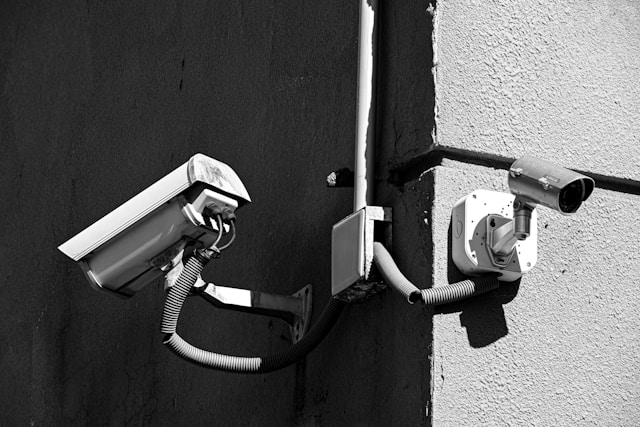The food and beverage industry operates as one of the most intricate and dynamic sectors which exists in the global economy today. Food manufacturers and distributors struggle with various operational issues that include perishable inventory management alongside regulatory compliance and product quality consistency. Companies in this sector benefit from Enterprise Resource Planning solutions which streamline their operations while improving traceability and overall efficiency.
ERP Systems: No Longer Optional in the Food and Beverage Sector
The necessity of implementing appropriate food and beverage ERP systems surpasses mere option status since it has become essential for companies to do so due to evolving consumer preferences and tightening regulations. Food and beverage industry ERP systems come equipped with specialized modules for inventory management and production planning together with compliance tracking and quality control features which make them essential tools for contemporary food businesses.
The integration of ERP is also a sign of shifting work cultures where innovation is encouraged internally — driven not only by leadership but also by bold intrapreneurship thinking, which enables employees to operate with entrepreneurial freedom within structured enterprises.
The Food and Beverage Industry Requires Specialized ERP Software to Meet Its Unique Requirements
The specific features of food and beverage ERP software differ from standard ERP systems because they cater to the particular demands of the industry. The food manufacturing industry requires complete tracking of ingredient movements between supply chain stages and systems to handle expiration date management along with rapid recall responses. The ability to maintain this level of control remains impossible without a dedicated ERP platform.
Statista forecasts that the ERP software market will exceed $100 billion in 2026 with food industry vertical solutions making up a substantial portion of this total. The Aberdeen Group found that food and beverage companies achieve better inventory accuracy along with enhanced demand forecasting after implementing ERP solutions at an 81% success rate.
This broader trend is also visible across entrepreneurial disciplines, where success often depends on having structured systems that support ways to fuel your entrepreneurial spirit, emphasizing ownership, clarity, and long-term strategy even in highly regulated sectors like food production.
Selecting Food Industry ERP Systems Requires Businesses to Look for These Key Features
Businesses selecting ERP solutions for the food and beverage industry must choose systems with these essential capabilities:
- Batch and Lot Tracking: The system tracks all components from raw materials to end products to enable both product recall management and quality control processes.
- The system provides regulatory compliance features which enable FDA and USDA standards along with international safety standards HACCP and FSMA.
- Recipe and Formula Management: The system allows users to control complex recipes through version control features and provides scalability options and nutritional analysis capabilities.
- The system provides features for tracking expiration dates and first-expiry-first-out (FEFO) inventory management.
- The system links production planning with forecasting methods to reduce waste production and optimize factory output.
- The system provides integrated Quality Management functionality to verify all products meet quality standards throughout the production process.
Food businesses can manage complex operations alongside regulatory requirements and customer requirements because of these features.
Leading ERP Solutions for the Food & Beverage Industry
Several popular food and beverage ERP software platforms are currently in use by the market today:
- Aptean Food & Beverage ERP
Aptean provides an industry-focused platform based on Microsoft Dynamics 365 that specifically serves food manufacturers and distributors. The system helps companies track product origin and monitor allergens as well as handle batch control and food safety regulations. Jasper Products adopted Aptean to enhance their inventory accuracy and reporting functions after their implementation.
- JustFood (now Aptean Food Manufacturing ERP)
The Aptean company acquired JustFood to deliver an extensive ERP system for mid-sized food producers. The system includes lot tracking functionality together with food safety documentation capabilities and production control features. JustFood from Aptean enables businesses in the food and beverage industry to bring operational practices into alignment with regulatory requirements.
- SAP Business One for Food and Beverage
SAP Business One delivers an adaptable platform which serves small to mid-sized food businesses. Real-time data analytics and quality control features along with financial management integration are included in the system. Nature's Pride utilizes SAP Business One to monitor its supply chain activities and forecast customer demands through real-time data analysis.
- Plex Systems
Plex provides cloud-based ERP solutions specifically designed for manufacturing operations with particular tools developed for food industry applications. The system provides real-time production information and automated traceability alongside compliance management features. The implementation speed and cost benefits of Plex systems surpass traditional on-premise ERP solutions which makes them appealing to companies.
Benefits of ERP in Food Manufacturing and Distribution
A well-designed food industry ERP solution transforms business operations in meaningful ways. Such benefits can be easily observed by most businesses after implementation:
- Enhanced Traceability and Recall Management
Food recalls create both financial costs and negative impacts on brand image for companies. ERP systems enable swift identification of affected batches which helps companies contain risks and minimize both their liability and response duration.
- Improved Forecasting and Demand Planning
ERP systems analyze historical records together with market patterns to create precise demand predictions that decrease both excess inventory levels and stockout incidents.
- Better Regulatory Compliance
ERP software provides companies with pre-built templates and documentation tools that help maintain compliance with changing food safety standards.
- Increased Operational Efficiency
Business operations become more efficient through automated tasks that include inventory updates and order processing and batch scheduling while minimizing errors.
- Data-Driven Decision Making
The centralized data collected from sales and production together with procurement and financial information allows managers to take swift data-based decisions.
Key Considerations in Selecting a Food and Beverage ERP System
The process to select an appropriate ERP food and beverage system consists of multiple factors.
The selection of an ERP food & beverage system depends on business size together with operational complexity and particular requirements. The following factors should guide your decision process:
- Scalability: Choose a solution that can grow with your business.
- Cloud solutions provide flexible deployment options with reduced initial expenses yet on-premise systems deliver better system management capabilities.
- The ERP system needs to connect seamlessly with your current CRM system and warehouse management and e-commerce platforms.
- User Interface: A user-friendly design minimizes training needs which leads to better system adoption rates among employees.
- The vendor needs to demonstrate extensive knowledge about food and beverage industry difficulties.
- An effective implementation depends on having all teams on board while maintaining clean data and defined processes.
Final Thoughts
The evolving food manufacturing and distribution industry demands that companies implement digital tools which deliver flexibility combined with regulatory compliance and data analysis capabilities. A properly executed food and beverage ERP system delivers operational efficiency while enhancing customer trust along with business resilience.
Aptean and SAP Business One and Plex Systems provide specialized ERP solutions that match the needs of different-sized businesses within the food & beverage industry. Selecting an appropriate solution at present determines whether your organization will survive or flourish in future marke
* This post is written in collaboration with our guest contributor, who has financially supported its publication.
Cover Photo by Christelle Sison on Unsplash




.jpg)







